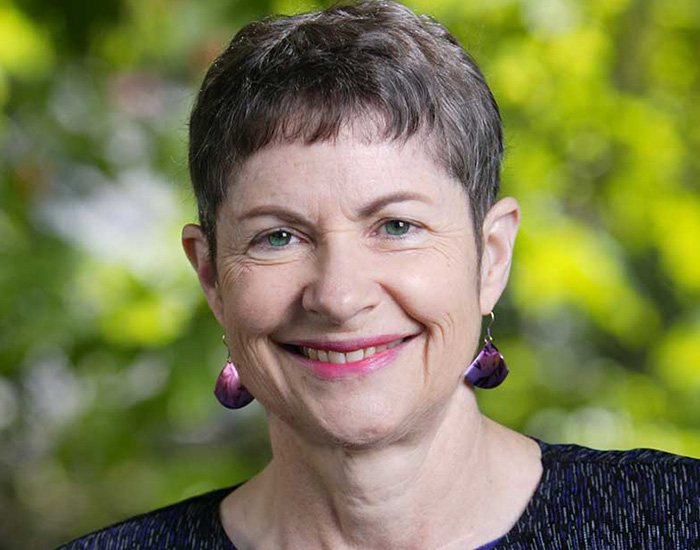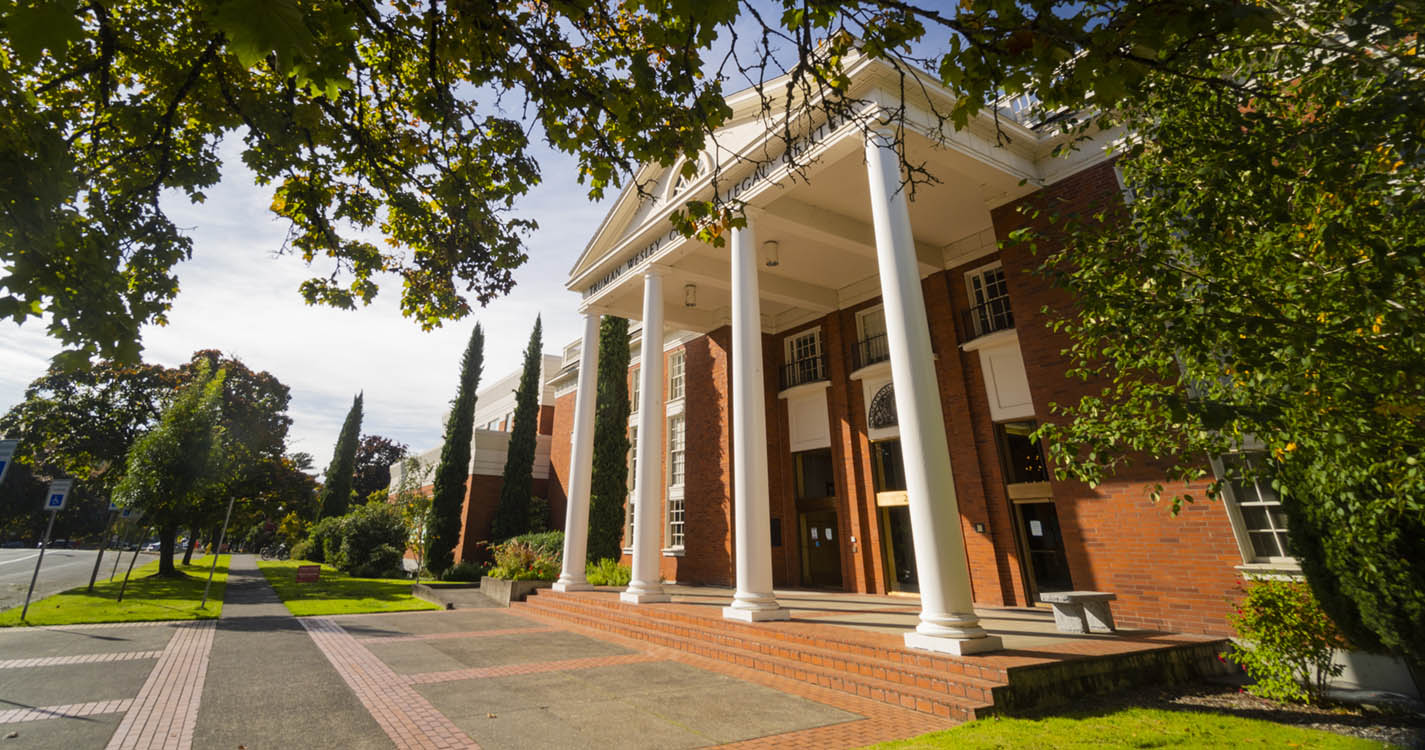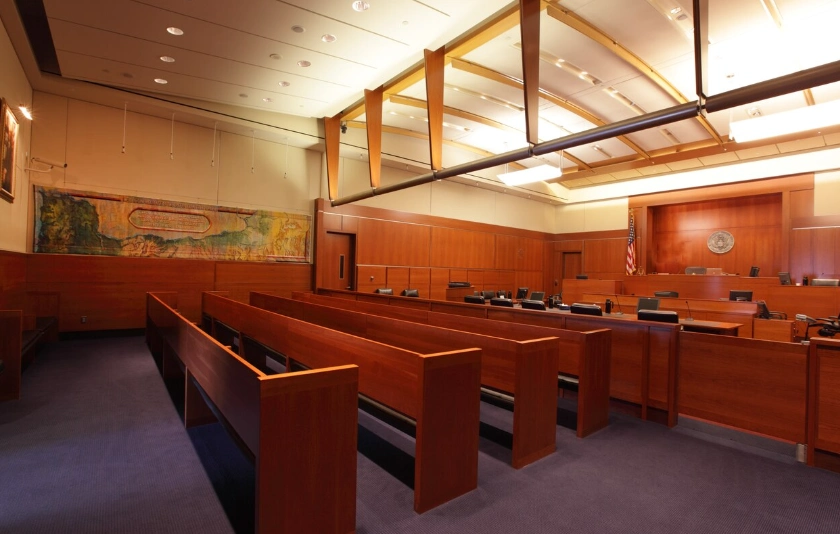During her time on the Willamette Law faculty, Professor Emerita Valerie J. Vollmar JD’75 was not afraid to be first – from being amongst the first Willamette Law professors to use a computer to being the first to use PowerPoint slides in class – Vollmar was well known across campus for being a trailblazer. But perhaps her most lasting legacy at Willamette Law is serving as the first faculty member to introduce experiential learning into her curriculum, paving the way for how classes are taught at the school today.

Vollmar began her legal career as a judicial clerk for the Honorable Otto R. Skopil Jr. from 1975 to 1977 before entering private practice, and later becoming a partner, at Clark, Marsh Lindauer, McClinton & Vollmar in Salem, Oregon. During her time in private practice, she enjoyed working directly with clients but felt pulled toward the teaching and organizational aspects of her work. When the opportunity to join Willamette Law as a visiting professor arose in 1984, it felt like the right fit and a complement to her strengths and interests as an attorney.
It was the right decision. As Vollmar puts it: “From the very first class, I knew I was where I belonged. And it was very important to me that students learn not just the law itself, but also the skills they would need as lawyers. I wanted to expose them to common client situations, show what good lawyers might do, and give students themselves the opportunity to practice and receive feedback. All my classes included a focus on the lawyer-client relationship, ethical issues, interviewing and counseling, educating a client about available choices, drafting documents, and taking other steps to implement a client’s decisions. Law school is one of the few places where future lawyers can learn these skills.”
In her early days of teaching, Vollmar reflected on the steep learning curve she encountered on entering practice, despite having done well in law school. She knew many new attorneys had a similar experience. This insight inspired her to approach teaching differently from a traditional law school course. She wanted her students to walk out of her class understanding – and experiencing – what it meant to apply what they learned in class. She discovered that hands-on learning brought a better understanding of what it truly meant to be an attorney.
In order to teach her students how to be practice-ready lawyers, Vollmar began utilizing experiential learning in each of her courses. “It was just in my nature,” Vollmar says, “I couldn’t teach my students what they needed to know just from a book, they needed to experience what it was truly like to be a lawyer.” In her trusts & estates and elder law courses, and in the trust & estates clinic, Vollmar incorporated as many real-world experiences as she could, something she quickly discovered required an enormous amount of work and creativity.
For example, Vollmar invited lawyers, judges, and other professionals to talk about their work. She also brought in members of the community to serve as mock “clients” and had students interview and counsel them to practice the skills students would need as attorneys. By weaving these kinds of practical experiences into her classes and writing a book that included real-life situations and contemporary cases, Vollmar exposed students to a more hands-on way of learning. “My focus was always on my students, on how I could better prepare them to be lawyers, and I always saw experiential learning as the best route to that goal,” she says. This style of teaching wasn’t always easy, as Vollmar found herself spending seven or eight hours preparing for each hour of class. But her dedication to her students’ education and her commitment to teaching practice-ready lawyers motivated her to continue to innovate.
“Years later, her students remember that the lights of her office were on until almost midnight. She was there, meticulously revising her notes for the next day’s class, even though she had taught that class countless times before, besides writing the book on it,” says Professor of Law & Dean Emeritus Symeon Symeonides. In fact, Symeonides reflects on her “relentless drive for excellence in her teaching.” Vollmar was known for embodying what it truly meant to go above and beyond for the sake of her students and the profession. Because of this, she fundamentally changed the way that law is taught at Willamette Law.
In fact, Vollmar taught Professor Susan Cook JD’96 during her time at Willamette Law. Cook credits Vollmar with both inspiring her to go into elder law and giving her the tools she needed to be a successful lawyer. It was Vollmar’s teaching, Cook says, that prepared her to work on cases right out of law school that other attorneys, with more experience, weren’t able to. In the courses she took with Vollmar, Cook recalls being sent out to the community, to nursing homes, and other hands-on experiences she didn’t get in other classes, which helped her not only learn the material but also gain practical experience. “She taught us about the active side of being an attorney while we were law students, and for that she was probably 30 years ahead of her time. She taught us this way because she knew it was the best way for us to learn and you always knew that her students came first because of it,” Cook says.
Now, Cook shares that she has the honor of teaching many of the same courses that Vollmar taught during her time at Willamette Law. When she began teaching at Willamette, Cook was able to hit the ground running as she drew on what she learned from Vollmar. With a focus on experiential learning, Cook built out her courses in such a way that they focused on helping students get real-world experiences.
“I don’t think Vollmar knew, when she brought experiential learning to Willamette Law, that she was planting a seed that would grow into such a fundamentally new and innovative way of approaching a law school education. Now, we can’t imagine not having these experiential principles and ideas as a part of our curriculum. It’s a credit to Vollmar and the legacy she left behind,” Cook says.
Today, Willamette Law is an emerging leader in experiential education and Vollmar is looking forward to what the school will be able to accomplish. “Willamette Law is different from other law schools, it strives to train the kinds of lawyers our community needs and that is what experiential learning most effectively helps to do,” Vollmar shares. As for the future of the school, she feels confident that it is heading in the right direction and credits Willamette Law Dean Brian Gallini for his leadership, particularly when it comes to experiential learning.
“We are indebted to Professor Vollmar for her classroom leadership and creativity. Her legacy is at once lasting and inspiring,” shares Gallini.



